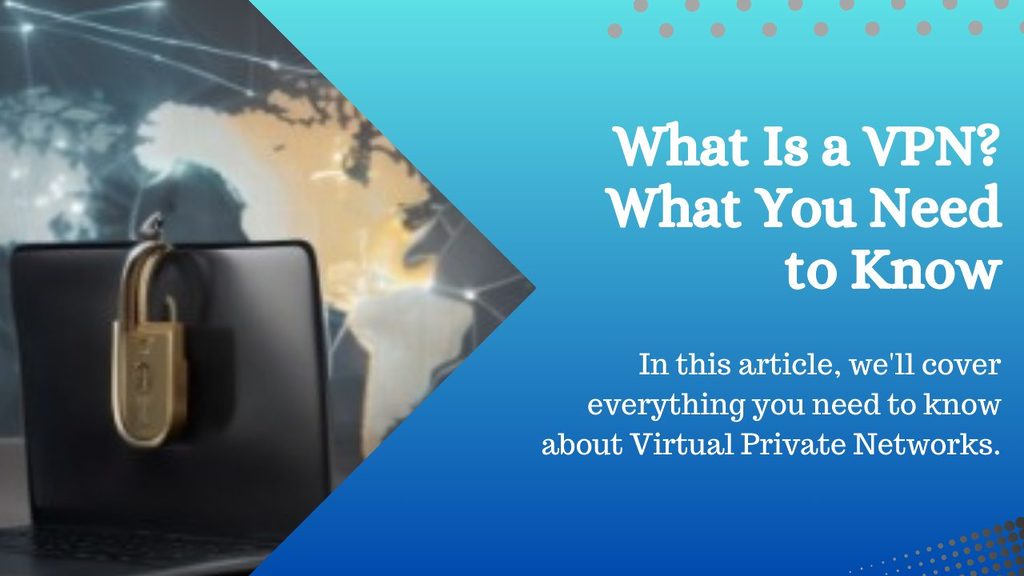What Is a VPN? What You Need to Know

Perhaps you’ve wondered, what is a VPN? It’s something that most people don’t know much about.
In this article, we’ll cover everything you need to know about Virtual Private Networks.
From the benefits of using a VPN to the different types available, we’ll explore how to choose the right one for you and how to set it up on your devices.
We’ll also talk about the potential risks and limitations of using a VPN, as well as the legal implications.
What is a VPN?
A Virtual Private Network (VPN) is a technology that provides online security, internet privacy, and data protection through encryption and network tunneling.
By encrypting data transmitted over the internet, VPNs create a secure connection between the user’s device and a remote server, preventing malicious actors from intercepting sensitive information.
This encrypted tunnel shields browsing activities, online communications, and sensitive data from prying eyes, enhancing anonymity and safeguarding against potential cyber threats.
VPN services allow users to mask their IP addresses, enabling them to browse the web anonymously and bypass geo-restrictions.
VPNs have become a crucial tool for individuals and organizations seeking to strengthen their online security and protect their privacy.
How Does a VPN Work?
A VPN works by routing internet traffic through a secure server, encrypting the data, and masking the user’s IP address through tunnel protocols.
This process involves creating a secure ‘tunnel’ between the user’s device and the VPN server, which acts as an intermediary.
The data passing through this encrypted tunnel is shielded from potential threats and interceptions, like hackers.
By changing the user’s IP address to that of the VPN server, the individual’s online activities become virtually untraceable, enhancing privacy and security.
This method not only safeguards sensitive information from cybercriminals but also allows users to access geo-restricted content by masking their true location.
When you use a VPN, your internet traffic is encrypted, ensuring that your online communications remain confidential and secure from potential hackers or surveillance.
By anonymizing your online presence, VPNs not only protect your sensitive data but also offer a shield against invasive tracking and targeted online advertising.
VPNs significantly strengthen your digital privacy and enhance your overall online safety.
What Are the Different Types of VPNs?
There are different types of VPNs, including those for remote access to private networks and secure connections over public networks.
Remote access VPNs are designed to allow individuals to connect to a private network from a remote location, such as employees accessing company resources from home or while traveling.
On the other hand, VPNs for securing connections over public networks are very important for maintaining privacy when using unsecured Wi-Fi hotspots in coffee shops or airports.
These types of VPNs create a secure tunnel between the user’s device and the private network, ensuring that sensitive data remains protected from potential cyber threats lurking in public spaces.
How to Choose the Right VPN for You?

Selecting the right VPN involves considering factors such as the reputation of the VPN service provider, comparing different VPN services, and understanding their policies.
The market offers several top VPN providers that come highly recommended for their security features, performance, and user-friendly interfaces.
5 of the top VPN providers in the market are:
- Among the leading VPN services in the industry is NordVPN, known for its robust encryption protocols and impressive track record in keeping user data secure and private.
- ExpressVPN stands out as a top choice for its lightning-fast speeds and extensive server network, allowing users to enjoy seamless browsing experiences with minimal lag.
- Serfshark is a fast provider that offers excellent security.
- Norton is a trusted brand and secure service provider used by millions and has a 60-day money back guarantee.
- TotalVPN offers multiple-device protection and has fast speeds.
Click here to read an article with more suggestions for VPN providers.
What Devices Can You Use a VPN On?
VPNs can be used on various devices such as computers, smartphones, and tablets through dedicated applications or software. They are compatible with operating systems like Windows, macOS, Android, and iOS, ensuring a wide range of device accessibility.
You can also use VPN services on smart TVs, gaming consoles, and routers by either installing specific VPN apps or configuring them directly.
How to Set Up a VPN on Your Device?
Setting up a VPN on your device involves establishing a secure connection, selecting a suitable protocol, and configuring the VPN settings for optimal performance.
- Once you’ve decided on the protocol that best suits your needs, such as OpenVPN, L2TP/IPsec, or IKEv2, you can proceed with entering the server information provided by your VPN service provider.
- After this, navigate to your device’s network settings and locate the option to add a new VPN configuration. Enter the required details, including server address, username, and password.
- Consider enabling features like split tunneling or kill switch for enhanced security and privacy during your VPN sessions.
What Are the Risks and Limitations of Using a VPN?
While VPNs offer protection, they also pose risks like cyber threats, potential digital footprints, and limitations concerning online protection.
Cyber threats such as malware attacks and data breaches can still occur even when using a VPN, as it does not guarantee complete immunity.
The digital footprint left by VPN usage can be concerning, especially if the provider keeps logs of user activity.
The protection offered by a VPN is not foolproof, as vulnerabilities and leaks in the connection could still expose sensitive information to potential hackers or monitoring entities.
In short, it’s not an end all be all. But it is better than no protection at all.
Is using a VPN legal?
Yes, using a VPN is legal in most countries.
However, using a VPN may have legal implications in regions with strict internet censorship laws or heavy online surveillance practices.
Censorship laws in some countries, like China or Russia, require internet service providers to restrict access to certain websites and monitor online activities.
By using a VPN to bypass these restrictions, you may be violating local regulations and risking penalties.
Governments and authorities may view VPN usage as an attempt to evade surveillance measures, leading to potential legal consequences.
It is important for you to be aware of the legal landscape surrounding VPN usage in your respective countries and regions to avoid any inadvertent breaches of internet censorship laws.
What Are the Potential Risks of Using a VPN?
Potential risks of using a VPN include performance degradation, limited access to certain websites, and connectivity issues that may affect user experience.
Performance degradation when using a VPN can occur due to the encryption processes that may slow down internet speeds, especially if the VPN servers are located far away.
Some websites may block or restrict access to users connected through VPNs, leading to limitations in accessing content or services.
Connectivity challenges such as intermittent connection drops or server downtimes can further impact the reliability and seamless operation of VPN services.
This poses potential obstacles for individuals relying on secure and private online connections.
In a Nutshell
Using a VPN, or Virtual Private Network, is a good option for most people.
Without one, you increase your risk for cybercrime and having your privacy and sensitive information unprotected.
One of the best money habits to have is to protect the money you have using VPNs.
Check out my article to discover 9 simple ways to create better money habits.
